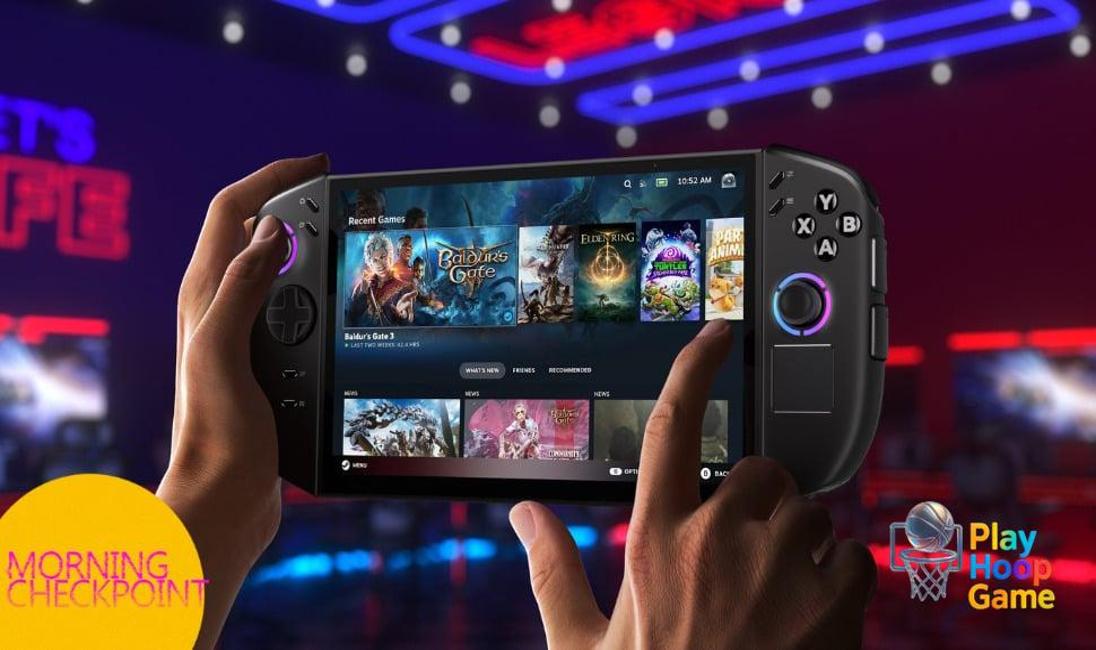Remember when handheld gaming meant a Game Boy and a handful of AA batteries? Simpler times, right? Well, those days are long gone. Now we've got PC gaming handhelds – miniature powerhouses that promise desktop-level gaming on the go. But here's the thing: these things are getting ridiculously expensive. Like, rent-is-due expensive. And I'm starting to wonder if the juice is worth the squeeze.
I mean, let's be real, a fully decked-out Steam Deck or an Ayaneo device can easily set you back over a grand. That's serious money. Money that could buy you a decent gaming PC and a used car (okay, maybe not a great used car, but still!). So, what gives? Why are these things so pricey, and more importantly, are they actually worth it? Let's dive in, shall we?
The Price of Power: Why So Expensive?
You might be wondering, why the heck do these things cost so much? Well, a few factors are at play here. First, miniaturization ain't cheap. Cramming all that processing power, a decent screen, and a battery that (hopefully) lasts more than an hour into a device you can hold in your hands requires some serious engineering. Tom's Hardware does some awesome teardowns of these things if you want to see what I mean.
Then there's the components themselves. We're talking about custom APUs (Accelerated Processing Units) designed specifically for these devices, high-resolution displays, and fast storage. All of that adds up. And let's not forget the software side of things. Developing custom operating systems and interfaces that can handle PC games on a handheld device is no small feat. Actually, that's not quite right. While some use fully customized OSes, most of these machines are based on Windows, which is licensed (and definitely not free).
But here’s the thing I keep coming back to: These companies aren't just selling hardware. They're selling an experience. The promise of playing your favorite PC games, anywhere, anytime. And that promise carries a premium.
Are PC Gaming Handhelds Worth the Hype (and the Cost)?
Okay, so they're expensive. We get it. But do they actually deliver on the promise of portable PC gaming bliss? Well, that's a more complicated question. On one hand, the technology is genuinely impressive. The fact that you can play games like Cyberpunk 2077 (albeit with some compromises) on a device that fits in your backpack is kind of mind-blowing. I've got to admit, this part fascinates me. Click here to read more.
On the other hand, there are compromises. Battery life is often a concern, especially with demanding games. Performance can vary wildly depending on the title and settings. And let's not forget the inevitable driver issues and software quirks that come with the territory of PC gaming. During my five years working with embedded devices, I saw similar problems time and time again.
And frankly, sometimes the controls feel a little cramped. Especially if you're used to a full-sized keyboard and mouse. I initially thought that I would use mine for FPS games on the go, but after looking deeper I have found that some games perform better than others. Maybe I will stick with my PS5 for that...
But then again, think about it this way: if you're someone who travels a lot or simply wants the flexibility to game in different parts of your house, a PC gaming handheld can be a lifesaver. Or maybe, just maybe, you don't want your kids hogging the TV all the time.
The Competition Heats Up (and Prices Stay High?)
The frustrating thing about this topic is how quickly the market is evolving. New devices are constantly being announced, each promising better performance and features than the last. But with each iteration, the price seems to creep ever higher.
We're seeing more competition from established players like Valve (with the Steam Deck) and newcomers like Ayaneo and GPD. But competition hasn't necessarily led to lower prices. In fact, it seems like everyone is trying to outdo each other with more powerful (and more expensive) hardware. Click here to read more.
But in the end, the price-performance ratio is not that great. The question for you is, what are you looking for?
FAQ: Your Burning Questions Answered
Is a PC gaming handheld worth it if I already have a gaming PC?
That's a tough one. If you primarily game at home and don't need portability, then probably not. You're essentially paying a premium for convenience. However, if you travel frequently or want to game in different locations, it might be worth considering. Just be prepared to make some compromises on performance and battery life.
How long will my battery last?
Ah, the million-dollar question! It really depends on the device, the game you're playing, and your settings. Expect anywhere from 1.5 to 4 hours of gameplay on a single charge. Demanding games will drain the battery much faster, so keep that in mind. Carrying a portable charger is never a bad idea.
Will PC Gaming Handhelds Are Getting Ridiculously Expensive stay expensive?
That’s the million-dollar question! Unfortunately, the trend points toward continued premium pricing, especially as manufacturers pack in more powerful components and advanced features. However, keep an eye out for sales or refurbished options, which can offer some savings. Waiting for older models to drop in price might also be a good strategy.
Can I play all my Steam games on a PC gaming handheld?
In theory, yes. But in practice, it's more complicated. Some games are perfectly optimized for handheld play, while others require tweaking or simply don't run well. Check compatibility reports and community forums to see how your favorite games perform before making a purchase.

























